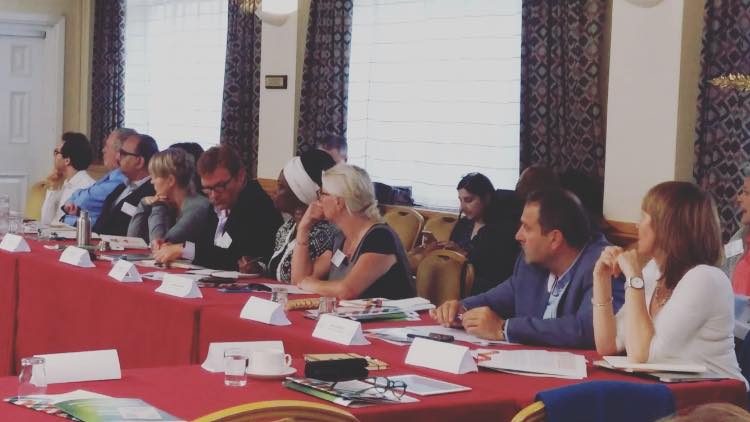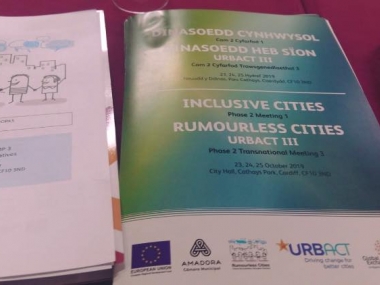TRANSNATIONAL WORKSHOP 3 “Developing Inclusive City Narratives” in Cardiff


This event was a co-designed and collaborative workshop bringing the Rumourless Cities (RC) and Inclusive Cities (IC)networks together. IC is a network of 12 UK cities sharing ideas around building strategic working and inclusive narratives which is led by the local authorities. Cardiff was the link city- being a member of both networks and brokered and hosted the collaboration and event. The event started with / a political roundtable with cabinet members, council leaders and mayors coming together from over 15 cities. Key messages which came out of this session were: -Migration is a win-win factor- it is not just a matter of welcoming immigration but cities need immigration. -It is essential to recognise the growing issues of economic exclusion and widening inequality and it's impacts not only on migrants but may other people. -Despite years of hard work, progress has been slow and things have for some got worse. This highlights the structural and national political and economic influences beyond the city level. -Cities face severe financial constraints -Use of language and it's links to values is important to recognise. Words such as 'cohesion' and 'inclusion' can be a bit abstract but leadership which talks of 'kindness' or 'sharing' for example can be more meaningful to people -The staffing of local authorities is still not representative or diverse enough / -There is a need for an integrated approach with other sectors and civil society.
On day 2, the day began with some context setting by Jacqui Broadhead of Inclusive Cities and Haroon Saad from Rumourless Cities.
Jacqui presented the Inclusive Cities Network framework which highlights some important factors such as: -The importance of understanding local opinion -People are often more positive about the local area than national level Political Roundtable / -The importance of language and benefits of talking about 'friendliness', 'kindness', 'sharing' etc (echoing a point made in the political roundtable. -Presenting a positive sense of place, talking about shared history, values etc and using an asset based approach. The framework has five elements, each posing a useful set of questions for cities to ask themselves:
1. Leading in the development of a shared local story of inclusion
2. Supporting and driving inclusive economic growth
3. Connecting communities
4. Mainstreaming and building inclusive public services
5. Encouraging ccivic participation and representation
Key points made by Haroon Saad include: -Inclusion is deeply connected to inequality and economic exclusion which are structural- distributive justice is essential for more inclusive societies -Social cohesion depends to a great extent on the legitimacy of local and national institutions and / currently there is a low trust in democracy -Accessing experiences through narrative does not automatically create a unified vision of what a place is or should be. -In order to combat spacial segregation we need to ask how inclusive are public spaces to citizens from a variety of socio-economic backgrounds? -A preoccupation with market values can crowd out other more important values such as empathy, generosity, solidarity, kindness -place branding essentially seeks to convert places into spaces of consumption. It is not the brand result but the branding process that offers opportunities for community engagement and ownership.
During the afternoon we had a roundtable to discuss about:
What do we mean by inclusive communities
Is it possible to define an inclusive community
What would be the essential benchmarks for an inclusive city
To what extent do you consider your cityinclusive, what more needs to be done
What does an inclusive approach look like in your city and how to measure progress
